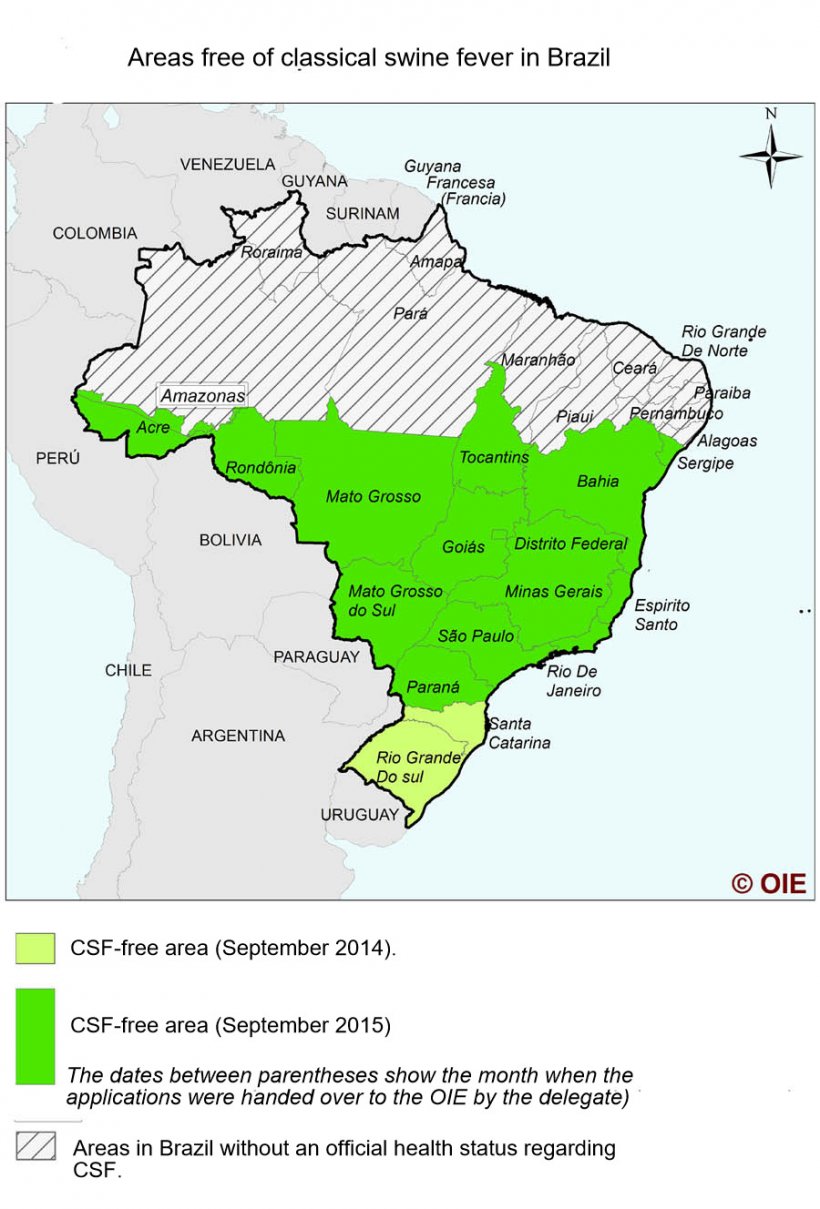Since the confirmation of the classical swine fever (CSF) outbreaks in the state of Ceará in 2018, and in Piauí in 2019, the intensification of the surveillance of haemorrhagic diseases has identified outbreaks in the state of Alagoas (an area not recognised as free of classical swine fever). The OIE/WOAH has confirmed 51 outbreaks in Ceará, 14 in Piaui and 7 in Alagoas since October 2018.
In Brazil there are two areas with a different animal health status regarding classical swine fever (CSF): a free area declared as such by the OIE/WOAH in June 2016 (provinces of Rio Grande do Sul, Santa Catarina, Acre, Bahia, Espírito Santo, Goias, Mato Grosso, Mato Grosso do Sul, Minas Gerais, Paraná, Rio de Janeiro, Rondônia, São Paulo, Sergipe , Tocantins, the Federal District and the municipalities of Guajará and Boca do Acre, the southern area of the municipality of Canutama and the southwestern area of the municipality of Lábrea, in the province of Amazonas), and an area that is not free of the disease or infected (provinces of Alagoas, Amapá, Amazonas, Ceará, Maranhão, Pará, Paraíba, Pernambuco, Piauí, Rio Grande do Norte and Roraima).


Situation of CSF in Brazil
In the areas free of the disease, CSF has not been detected since January 1998, whilst in the areas that are not free, Brazil notified the last outbreak of the disease in August 2009, but it reappeared in Ceará in October 2018; in Piaui, in the area bordering with Ceará, in May 2019; and now in Alagoas.
The traffic and business regarding animals between the free area and the zone not recognised as free of CSF is forbidden, and there are clear limits protected by natural barriers and control points in which surveillance procedures and procedures for the mitigation of the risks regarding the introduction of the disease into the free area are implemented continuously, following the restrictions established in the official regulations of the Ministry of Agriculture, Livestock and Supplies.
Monday, October 21st, 2019/ 333’s editorial office from data by the OIE.





